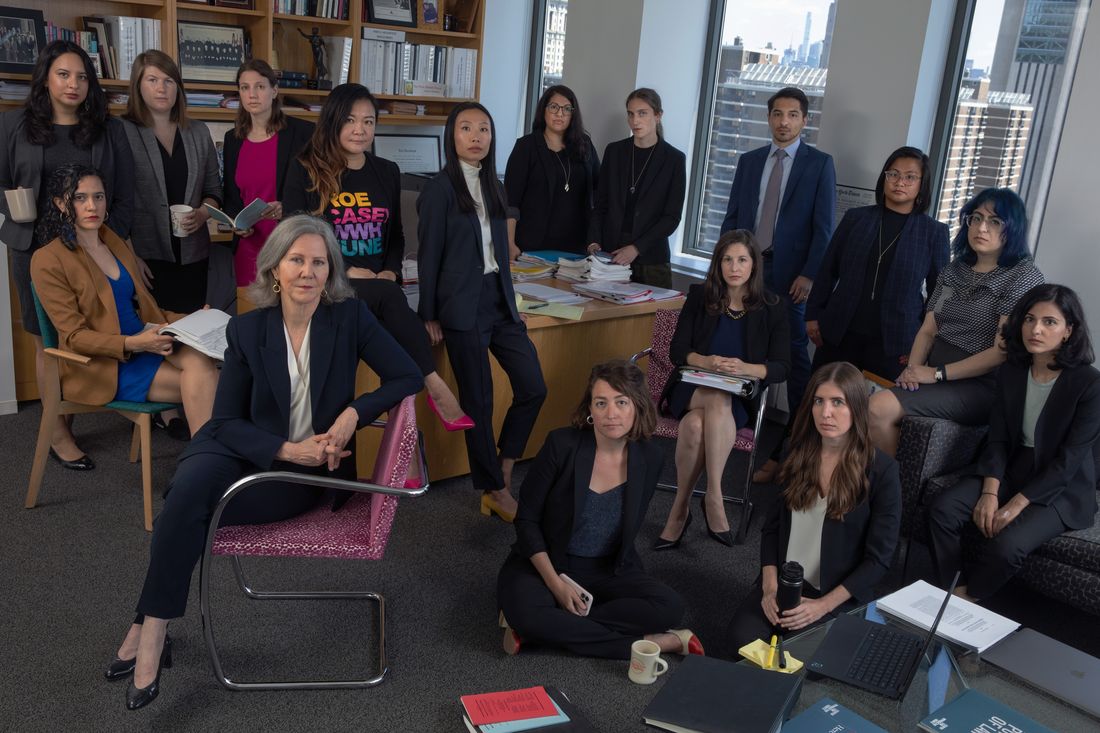
Front row (from left): Astrid Ackerman, Nancy Northup, Hillary Schneller, Genevieve Scott, Caroline Sacerdote, and Kulsoom Ijaz. Back row: Adria Bonillas, Cici Coquillette, Michelle Moriarty, Jenny Ma, Alice Wang, Meetra Mehdizadeh, Jessica Sklarsky, Nicolas Kabat, Jen Rasay, and Rabia Muqaddam.
Photo: Tina Tyrell
Amid a terrible week for reproductive rights, there was a small reprieve: On June 27, days after the Supreme Court struck down Roe v. Wade, a Louisiana judge blocked a spate of so-called trigger laws designed to outlaw abortion in the state as soon as Roe fell. Similar injunctions followed in Utah, Kentucky, and Florida, while in Texas a judge blocked a ban that had been on the books before Roe. Together, these rulings are temporarily keeping abortion legal in those states and signaling that there may be a way to jam up the new anti-abortion regime.
The injunction in Louisiana took many in the media by surprise, but it’s the product of years of spadework by the Center for Reproductive Rights, whose lawyers co-authored the suit challenging the trigger laws. “We started publishing ‘What If Roe Fell?’ ” — a state-by-state report on the consequences of overturning Roe — “in 2004 because we
